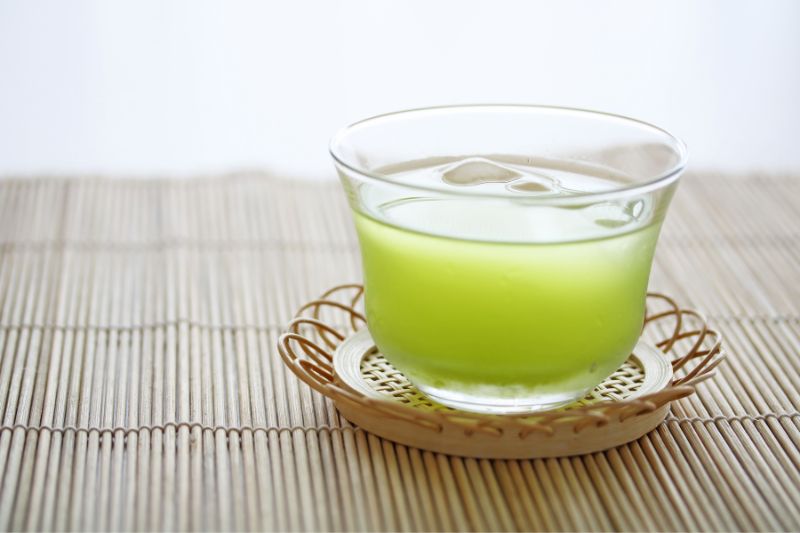You might have relished a steaming cup of green tea, seeking its comforting warmth or touted health benefits. But did you know this ancient beverage has played a significant role in medicine for centuries?
Initially used in traditional Chinese medicine, green tea is now used in modern surgical procedures. Let's explore its incredible journey.
A Quick Peek Into History
So, where did green tea come from? Green tea's story started in ancient China. It quickly gained popularity across other Asian countries as a soothing remedy for various ailments. It's not just a delicious drink, as this humble beverage was once the crown jewel in the arsenal of ancient medicine cabinets.
Historically, it was believed to boost energy, improve digestion, and even prolong life. Ancient healers would brew tea leaves and have people drink them to control bleeding, heal wounds, regulate body temperature, lower blood sugar, and improve heart health.
A Wealth Of Benefits For Your Health
So, what makes green tea unique? It's packed with polyphenols, especially a type called catechins. These compounds are potent antioxidants, meaning they protect your cells from damage.
When you sip green tea, you're essentially fortifying your body's defenses. In simpler terms, think of it as giving your body a mini shield against diseases.

Beyond The Cup: Modern Medicine Takes Notice
Now, let's fast forward to contemporary times. Modern medicine has recognized the potential of green tea. Today, you'll find it used in various ways to enhance patient care, especially in surgery.
Let's see how.
Before The Cut: Pre-Surgery Care
Surgery can be a nerve-wracking experience, regardless of its nature. Whether it's a minor operation or a major procedure, the anticipation, the hospital setting, and the fears of potential complications can escalate your anxiety levels. This is where green tea steps in as a pre-surgery guardian.
Green tea contains an amino acid called L-theanine, which promotes relaxation without drowsiness. When you sip green tea before surgery, L-theanine works its magic, reducing stress hormones and promoting a calm state of mind. So, instead of reaching for a sugary drink or coffee that might exacerbate your anxiety, a cup of green tea can be a better choice for your pre-surgery jitters.
Beyond calming nerves, green tea's antioxidants also provide your body with extra protection from oxidative stress. Green tea has six primary catechins: catechin, epicatechin, epigallocatechin, epicatechin gallate, gallocatechin, and epigallocatechin gallate (also known as EGCG). EGCG can assist in various surgical procedures. These compounds can help reduce inflammation and protect tissues during major organ surgeries.
Suppose you're undergoing surgeries related to the digestive system or abdominal area, green tea might be beneficial in yet another way. Traditionally, it's believed to aid in digestion and promote gastrointestinal health. A properly functioning digestive system can assist in quicker recovery post-surgery.
While green tea is beneficial, it's essential to consult with your healthcare provider before including it in your pre-surgery routine. Some surgical procedures may require fasting or avoidance of certain foods and drinks. Always prioritize medical advice to have a more relaxed and fortified surgery experience.

Heal With The Leaf: Post-Surgery Recovery
The aftermath of surgery can often be as challenging as the surgery itself. The body is vulnerable, working diligently to heal wounds and adjust to potential changes. It's crucial to support the body in every way possible during this period, and green tea, with its plethora of benefits, might be the ally you need.
Wound healing is one of the lesser-known properties of green tea. The polyphenols present in green tea can accelerate the body's natural healing process. It assists in the speedy recovery of surgical wounds by reducing inflammation and combating harmful bacteria.
Consuming green tea isn't confined to drinking. You can also apply green tea extracts or infused ointments to improve wound healing and reduce scarring. Green tea's anti-inflammatory properties can be a blessing in recovery.
Detoxifying And Cleansing
Your body might have accumulated toxins after surgery, especially if you were under anesthesia. A gentle detox can help speed recovery, and green tea serves this purpose well. When you sip this elixir, its diuretic properties help flush out toxins, promoting a cleaner and more efficient system ready for recovery.
Energy Boosting Minus The Jitters
While you need rest, short periods of light activity or physical therapy can help you recover faster. Green tea provides caffeine, but in lesser amounts than coffee, offering a mild boost without the overwhelming rush. Plus, with L-theanine balancing out caffeine, you get an energized yet calm state, perfect for healing.
Enhancing Post-Surgery Immunity
Aside from a quick energy boost, green tea's rich antioxidant profile can give your immune system a helping hand. Fighting free radicals and strengthening the body's natural defenses ensures you're better equipped to ward off infections and complications.

Soothing The Mind: More Than Just A Sip
Recovery isn't just about physical healing. The mental and emotional toll can also be significant. You may feel extremely vulnerable, anxious, or depressed from prolonged bed rest and limited activity. It's essential to address this aspect of recovery; green tea offers more than you might realize.
A significant effect of green tea's calming effect is L-theanine, an amino acid that promotes relaxation. Unlike other sedatives, L-theanine relaxes the mind without causing drowsiness. Drinking green tea post-surgery works synergistically with caffeine, ensuring you experience alertness without the jitteriness often associated with other caffeinated drinks. This balance is ideal for maintaining a positive mood and outlook during recovery.
Aside from giving good vibes throughout the day, sipping green tea before bed can also pave the way for a more restful sleep. Green tea may lower cortisol levels so your body and mind can rejuvenate.
Holistic Healing And Long-Term Mental Health
Did you know that integrating green tea into your recovery routine can also become a mindful practice? Brewing, smelling, and slowly savoring a cup can be meditative. This can be a time to reflect, practice gratitude, and focus on the journey ahead. This holistic approach to recovery can be immensely beneficial in navigating the emotional roller coaster post-surgery.

Green tea's benefits go beyond immediate post-surgery recovery to achieving long-term mental health. Regular consumption has been linked to reduced risks of depression and cognitive decline. So, as you continue your recovery journey, know that your choice of green tea could impact your mental well-being.
A Word Of Caution For You
Before you start guzzling gallons of green tea before or after your surgery, remember moderation is key. Overconsumption can lead to side effects such as insomnia or digestive issues. Also, always consult your doctor, especially if you take certain medications.
Wrapping Up The Green Tea Saga
Green tea has had quite the journey from ancient brews to modern surgical rooms. For you, it serves as a bridge between traditional wisdom and modern science. So, the next time you hold that cup, take a moment to appreciate its legacy—a blend of history, health, and hope.
Enjoy your cup, and have a quick recovery and good health!
Get Free Bonus Books

Sign up for free to the Green Tea Club to get advice and exclusive articles about how to choose Japanese Tea, and tips, tricks, and recipes for enjoying Japanese tea.
About the author
Kei Nishida
Author, CEO Dream of Japan
Certification: PMP, BS in Computer Science
Education: Western Washington University
Kei Nishida is a Japanese green tea enthusiast, a writer, and the founder and CEO of Japanese Green Tea Co., a Dream of Japan Company. His passion for introducing America to the tea of his homeland was the catalyst for creating the only company that brings high-quality tea from Arahataen Green Tea Farms to the rest of the world. Learn more about Kei























